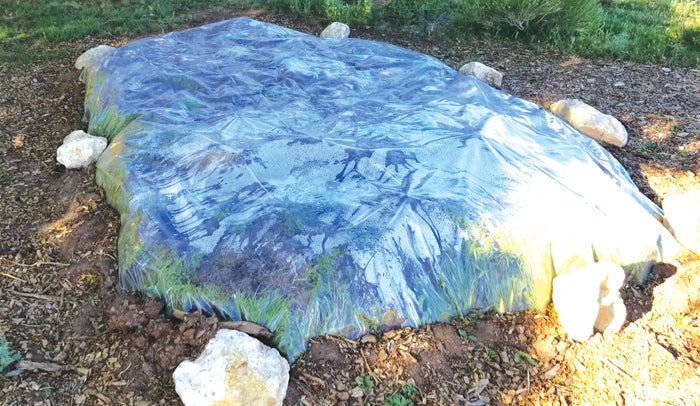Darrell Blackwelder: Soil solarization kills plant pests
Published 12:00 am Sunday, July 21, 2019

- Soil solarization beds utilized in Grand Canyon National Park to control weeds and diseases in natural areas. Photo by Darrell Blackwelder
Home gardeners who place the same plants in the same location each year will ultimately experience fungal and bacterial disease buildup, as well as insects and other pest problems.
Many have no choice because of limited gardening space and rotation may not be an option.
However, there may be a simple solution that will reduce diseases and insects in planting areas.
Soil solarization, utilizing clear plastic, kills plant pests by heat treating the soil. Commercial vegetable producers in California use soil solarization to avoid using pesticides.
Plastic placed over the soil raises the soil temperatures to 180 degrees, reducing most fungi, bacteria, insects and weed seeds. Now is an excellent time to consider this practice with the excessively hot temperatures we’re currently experiencing.
Make sure the area to be treated is clear of plant debris. The soil should be irrigated as this helps the heat penetrate deep into the soil. It’s important to keep the soil moist for best control.
Try to use UV light-resistant clear plastic if available. Seal the edges of plastic with mounds of soil to trap the heat.
The solarization process takes 6-8 weeks for best results. One drawback is that often good bacteria will also be eliminated in this process.
Be sure to add ample compost and organic matter to replace beneficial bacteria.
Darrell Blackwelder deblackw@ncsu.edu is the retired horticulture agent with the North Carolina Cooperative Extension Service in Rowan County.




